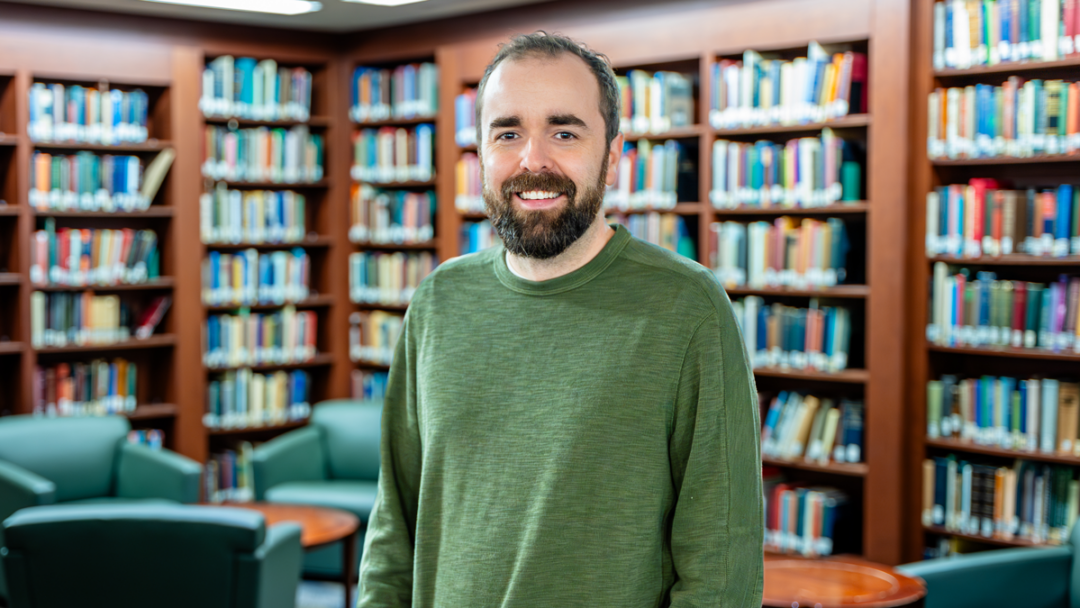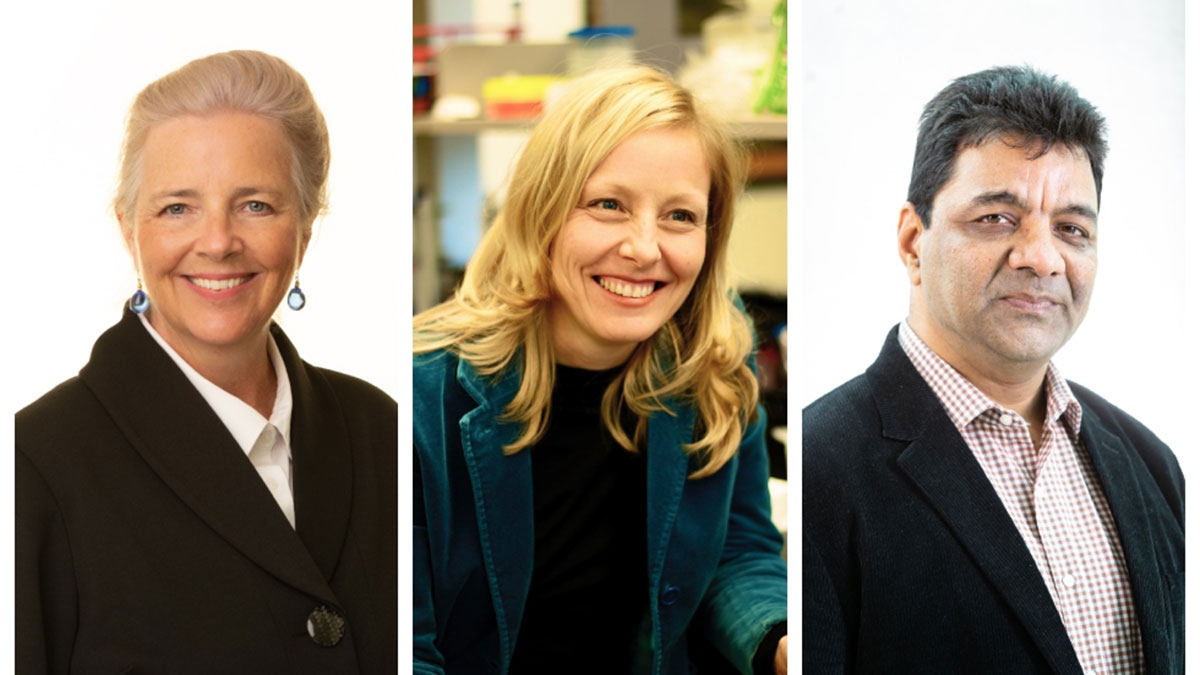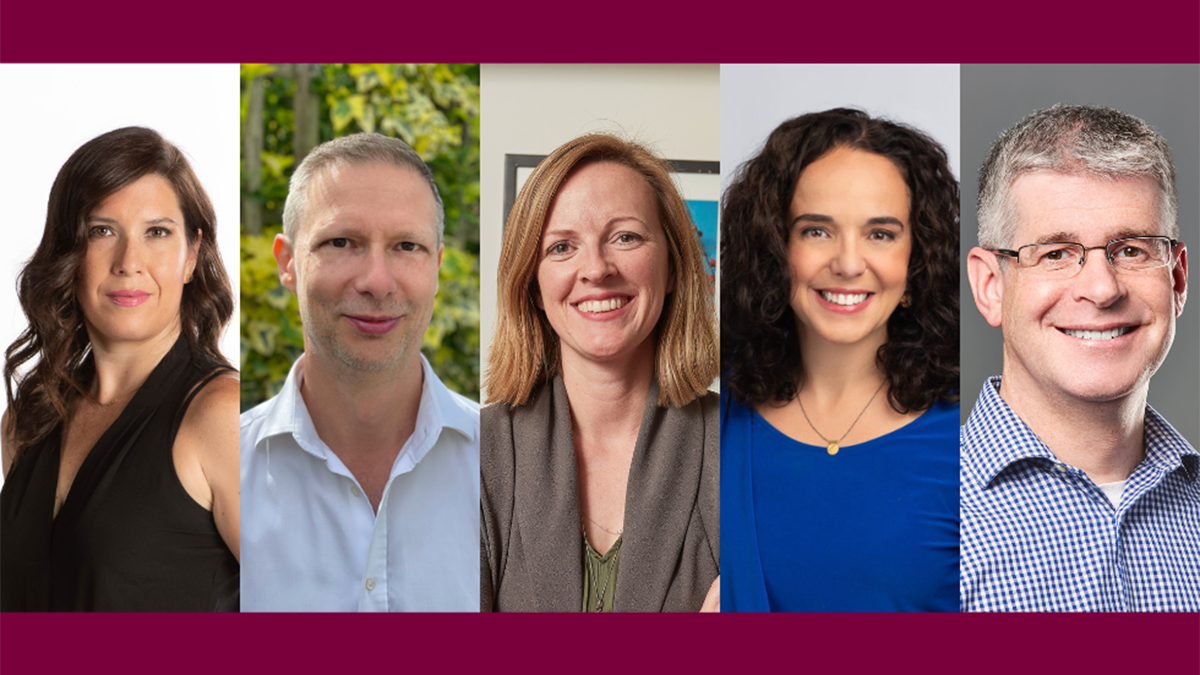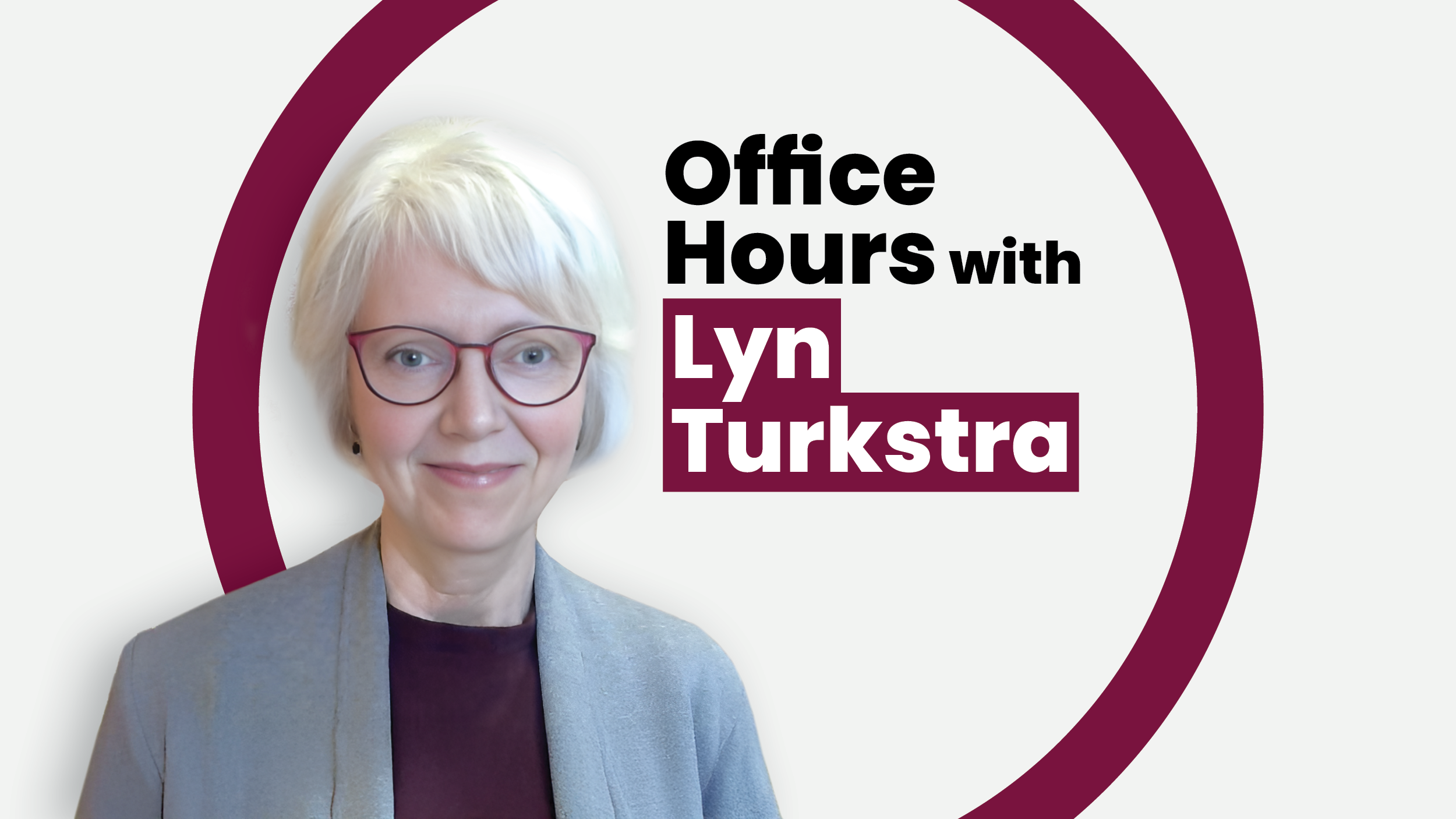Come to work with a research impact librarian

McMaster University’s Faculty of Health Sciences is powered by nearly 1,500 staff members. In the series “Come to work with,” we’re profiling staff across the Faculty and the critical work they do.
Jack Young is a research impact librarian with the Health Sciences Library. We spoke with Young about his journey at McMaster and how he uses data about research to “forecast into the future.”
Who are you and what is your role with McMaster’s Faculty of Health Sciences?
I started as a librarian with McMaster in 2015 after a co-op placement. When I first started, I focused on e-learning and instructional material development to support the instructional and research goals of the Faculty of Health Sciences, but over time, my responsibilities have shifted.
About five years ago, we saw an emerging need to support more research impact and bibliometric analysis – which is a sort of methodology for doing research impact work. Basically, we are leveraging data we have about the research that’s being done here at McMaster in the Faculty of Health Sciences to help researchers, administrators and the university as a whole explore and express the impact that their work is having.
Research impact means something slightly different to everybody. Every researcher, department, and university might have its own vision as to what it means to make an impact with their research. At the library, we help all these stakeholders identify the types of data that are important for them to capture and collect – this data indicates the impact their work is having.
How do you help researchers and the university understand the impact of their research?
One of the key tools in our arsenal is the McMaster Experts database, where researchers each get their own profile page and can claim their work – that is that first step in identifying what’s yours and what isn’t yours. Once we have that initial set, we can do all sorts of analysis on that data to look at things beyond just publication output. We can now look at how often your work is getting cited by other researchers; who those researchers are and where they are in the world or what institution they’re at; we can look at trends like who you’re collaborating with, if that is an important goal that you want to grow; international collaborations within your research; or citations in specific types of documents.
So, for example, maybe in Health Sciences there is a need to focus on how often we’re getting cited in clinical practice guidelines and work that informs patient treatment. We can also look at things like how often work is getting picked up in social media or generate media reports to get a sense of impact outside of academia. There is a lot of different data around the research that we’re generating at McMaster. What we do in the library is help you take that data and focus it to your definition of what research impact means.
What’s a typical day like for you?
A portion of my day-to-day work is working directly with folks who are doing research – so these would be individual researchers or students. Oftentimes I find myself meeting with program administrators or departmental administrators to help them get a better understanding of the types of data that might be relevant for their reporting purposes. I meet with faculty one-on-one to help them establish and set up things like their MacExperts profile or their ORCID unique identifiers. I spend a large portion of my time doing data analysis and compiling it into reports that I can then present to the stakeholders that I’m working with.
What advice would you give to someone starting a role with McMaster?
It can be intimidating to enter a university or any giant organization. It’s hard to know what’s going on in every nook and cranny or to know exactly where your work is going to fit in. Sometimes you might feel a lack of confidence that you belong at a certain table. But what I would say is the university is very open to ideas and to collaboration, and so it’s important to give yourself the time to learn, to try and shrug off that feeling of impostor syndrome and recognize this is a huge place. You need to give yourself enough time to learn the different processes and the different areas where your work can support. It might sound kind of clichéd, but always be open to those opportunities.
What do you like most about your job?
I think there’s somewhat of a misconception of research impact – that all we can do is look backwards and see where we came from. And there is definitely huge value in talking about the successes that we’ve had in the past. But as our ability to analyze the data becomes more and more powerful, we can forecast into the future, and that is what excites me the most.
We can look at things like trends in research funding globally, for instance, and get a better understanding of where we think funds might be allocated in the future, which could inform research decisions within the university. There’s also the power to identify collaborations that we might not always be aware of. We can look globally at the work that researchers are doing, and we can almost match-make researchers at McMaster with those outside of the institution or potentially across the institution to strengthen multidisciplinary or interdisciplinary work. We have the ability to strategically plan a research mission that has been untapped largely to this point and which has the most potential for growth moving forward.
Knowing that the work you’re doing – especially when it comes to contributing to things like systematic reviews – is having a direct impact on patient care is a strong incentive to do good work. This institution, specifically the Faculty of Health Sciences, has massive influence. So, to me, there’s this constant reminder of all the important work that I am playing a role in. It’s a very encouraging process.
Come to work with, Faculty & StaffRelated News
News Listing

2 days ago

November 14, 2024

